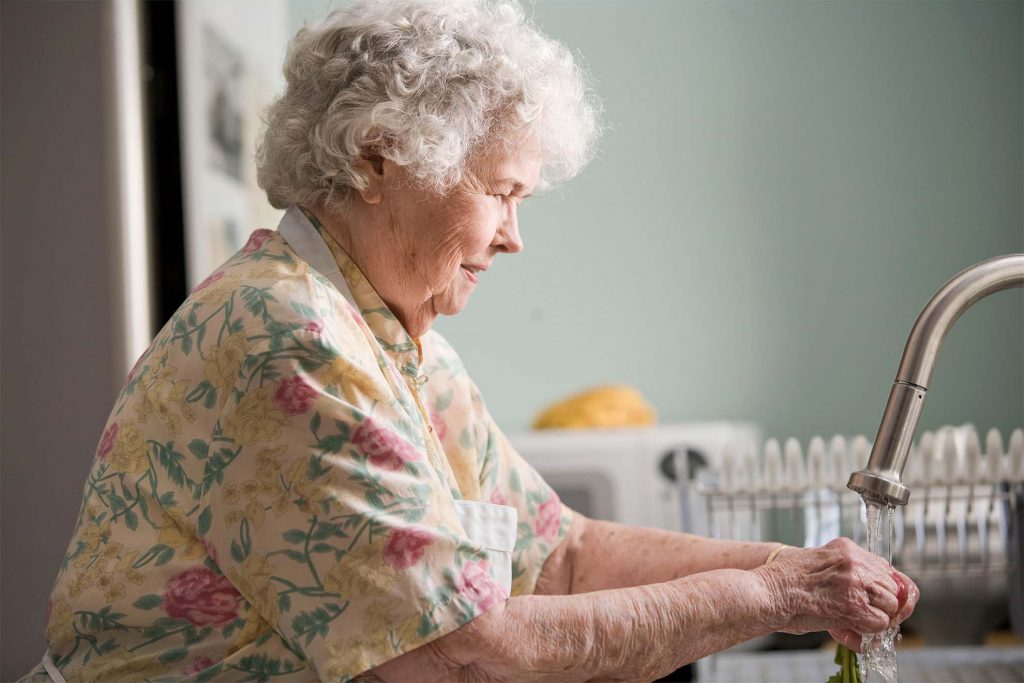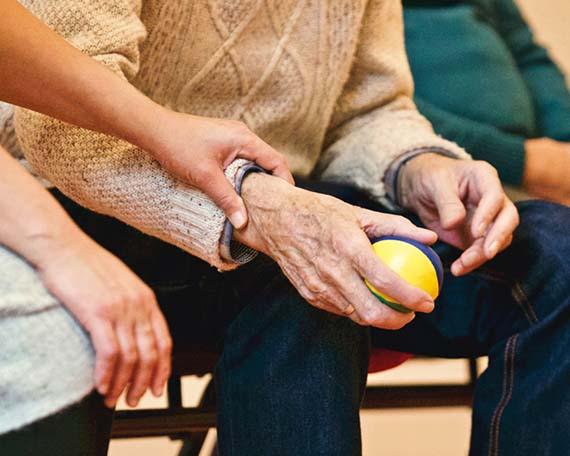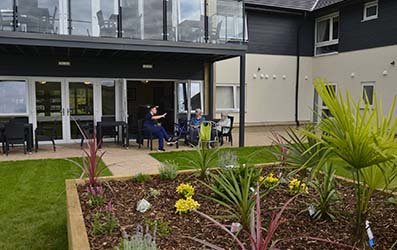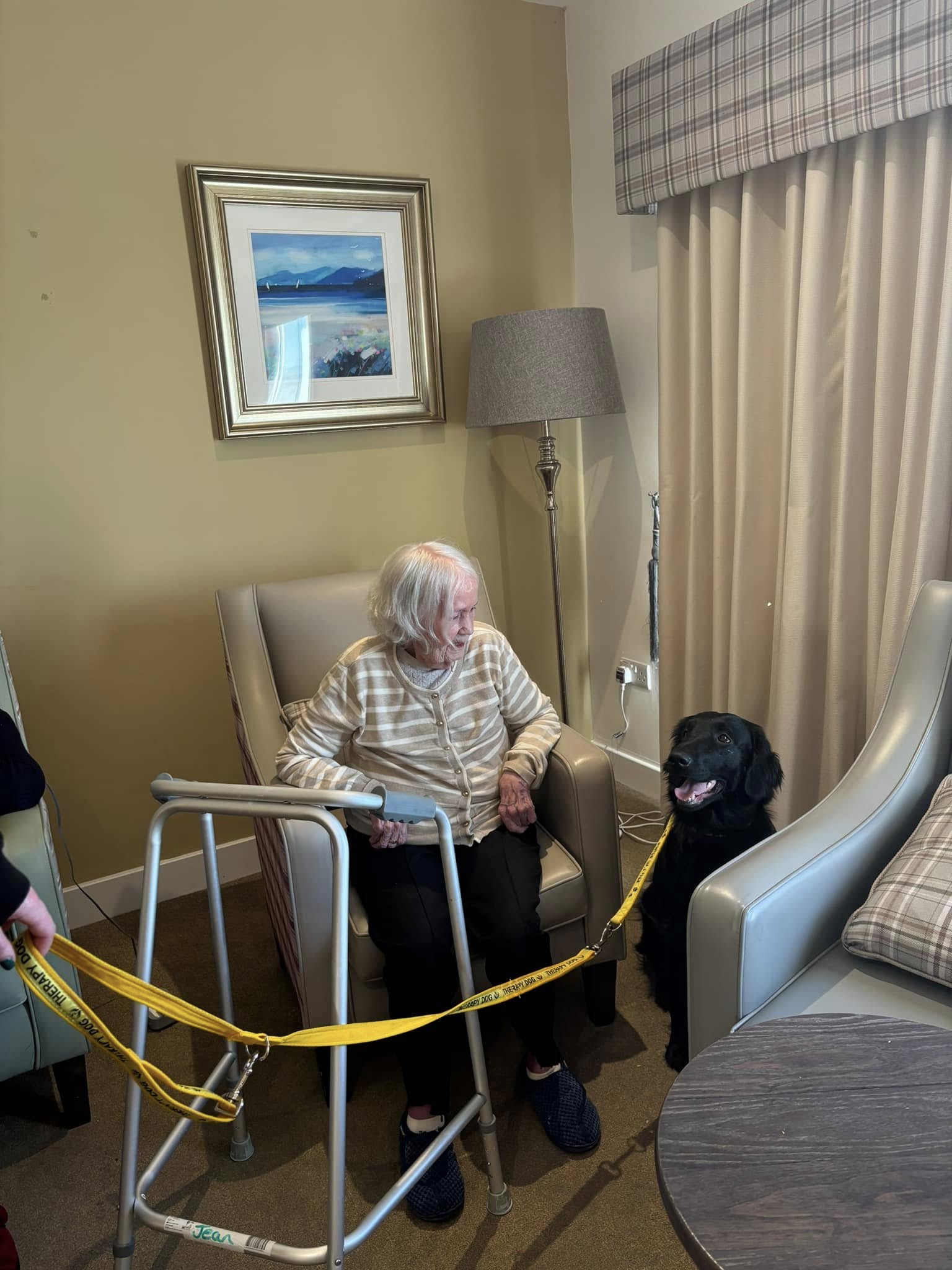When Should Someone With Dementia Go Into a Care Home?

Understanding when the right time is to move someone with dementia into a care home is not always easy. There are many factors that contribute to this decision and can make the whole process a daunting one. Before knowing what the most important factors to consider are, it is best to gather an understanding of how dementia affects a person. Dementia is a progressive neurological condition that can affect an individual’s cognitive abilities such as communication, memory and decision-making. As the condition progresses, people with dementia may find it difficult to complete daily tasks. This is when they will begin to rely on caregivers or family and friends to support them during this time. However, as time goes on the progression of their dementia will reach a stage when moving into a care home will be the best option.
There are numerous factors to consider when looking at moving your loved one into a care home. To give you a better understanding, we have outlined the main factors to consider below.

If the Caregiver is Struggling to Provide Adequate Care
Caring for individuals with dementia can be a full-time job which can, over time, have an impact on the caregiver's mental and physical health. Effects of burnout can include exhaustion, stress and reduced motivation which in turn can prevent them from providing the level of care that loved ones require. Moving a loved one into a care home can provide them with the most appropriate 24-hour care for them, as care homes employ staff that have undergone specialist training. This gives caregivers or family members the chance to unwind and get back into their usual routine through respite care or full-time care.
When There Are Concerns For an Individual's Safety
One of the most important factors that should be taken into consideration when deciding whether your loved one should move into a care home is their safety. Because dementia is a progressive condition, there will become a time when your loved one could become disorientated, frustrated and confused a lot of the time because of the decline in their mental capacity. This could lead to accidents happening that could potentially put them at risk such as forgetting to turn off the hob, getting lost when outside or forgetting to close the front or back door. At this point, you should consider looking at a facility where your loved one can be cared for during every hour of the day. Each staff member will have undergone specialist dementia training to ensure they can offer appropriate personal care for those with dementia.
When Finances Become a Struggle
As individuals get older, they may not be able to afford to look after themselves to the degree that is needed. With there currently being a cost of living crisis and prices constantly increasing, this can make situations difficult for those with dementia and could result in them feeling worried and confused. When they move into a care home, the home will take care of all finances, meaning the resident can continue to live their life to the fullest and not have to worry about tasks associated with managing a household.
There are many factors that contribute to the cost of a care home. Some of these include location, the type of care required, and what is included in the care package. There are some options for funding that individuals could apply for via their local council which will carry out a care needs assessment. Social services will look into an individual's assets and income to determine if they qualify for financial support from a local authority.
When Social Contact Becomes Sparse
Dementia is a condition that can make a lot of people feel extremely isolated, resulting in them losing motivation for activities or tasks they once enjoyed and looked forward to. These feelings can develop and lead to isolation and depression which can cause them to decline at a much faster pace. When an individual is unable to easily socialise with other people and doesn’t enjoy the things they once found joy in, it would signify that you should begin to consider a care home for them. When living in a care home, residents will be able to reap the benefits that come with group living and have the opportunity to take part in activities they enjoy alongside like-minded individuals. When there is a team of healthcare professionals that can support all daily tasks, it means residents can continue to find joy in each aspect of their life once more.


Finding the Most Appropriate Care Home
There is no specific time frame that determines when an individual should move into a care home because each experience is different and is not a decision that should be made quickly or without planning. It is important that you find a care home that not only loved ones think is appropriate, but one where the individual with dementia can feel comfortable in their surroundings. It is vital to consider a care home that has staff members specifically trained in dementia care and that can offer the level of support your loved one requires. It is also important to look into the location, accessibility, cost of care and amenities offered within a care home to ensure your loved one is happy there, as the goal is to ultimately better the quality of their life.
The process of finding a care home can be a difficult time for not only your loved one but the family members who are involved. There are means of support or advice that you can have access to give you reassurance during this time. Organisations such as Dementia UK or Age UK as well as nurses, practitioners or social workers can offer their advice and provide care options.
The Opportunity to Live Life Their Way
Whilst residents with dementia aren’t able to completely live independently due to the daily care and support they require, it is still important that they are included in the decision-making as much as possible. Ensure to ask your loved one what their preferences are when it comes to activities, food and bedroom location. If it is possible, take them on a tour so they can get a feel for the care home and see how they react to the environment.
Clear Means of Communication
Due to the progressive nature of dementia which results in a decline in mental capacity, you need to ensure to ask questions in a more simple way that they can understand. Don’t pressure them to answer questions quickly and offer them reassurance or further descriptions if it is needed. A family member should acquire a power of attorney so that they make any decisions on behalf of the person if it’s necessary. This will need to be decided prior to them moving in, so it is important to communicate with them and let them know the decision, or give them the opportunity to decide if possible.
Familiar Surroundings
Dementia can cause disorientation in individuals, so it is important to offer them a place of residence that they feel comfortable in, for example, a place with familiar surroundings that conveys a home-like setting. Find a location that is close to their current home so that the local community is one that they recognise which will help them to feel more at ease. Also, ensure the care home is dementia-friendly e.g. clear signs, contrasting colours, natural lighting and reminiscence rooms.
Continuity of Care
To allow a care home to offer the highest quality of care for your loved one, they will need to know as much information as possible about a person, such as their medication, daily routines and medical history. The team at the care home will carry out a care needs assessment both before and throughout their time at the care home to ensure they receive accurate care throughout their stay, and as and when their care needs change of develop, care plans can be adjusted for peace of mind.
High-Quality Care Matched With a Luxury Standard of Living at Kingsacre
Kingsacre Care Home is positioned near the popular historic town of Clydebank. Kingsacre offers the highest standards of customised care including Dementia Care, Respite Care, Residential Care, Nursing Care and Palliative Care for older adults. Our purpose-built home allows us to provide our residents with the care and support they need, whilst giving them the opportunity to live independently.
Alongside our around-the-clock care, our residents have the opportunity to make use of our wide range of facilities and amenities including an entertainment & activities programme, library, hair & beauty salon and cinema which provides plenty of opportunities for residents to enjoy life’s little luxuries.
We take pride in the dementia care we offer residents living with dementia, with a team of health and social care professionals that can support a wide range of care needs. Each resident receives a care assessment and following this, we create a care plan for their personal needs as everyone is different. We offer dementia-friendly activities and therapies in a calming space for residents to lead a high-quality lifestyle.


Get in Touch With a Member of the Team
If you require any further information regarding our dementia care or our other care services, please don’t hesitate to contact our friendly and dedicated team by calling 01414 735500 or emailing enquiries@kingsacrecare.co.uk. We look forward to hearing from you.





